イベント
【公開セミナー】Tsutomu Suzuki, Ph.D.
2024年9月11日
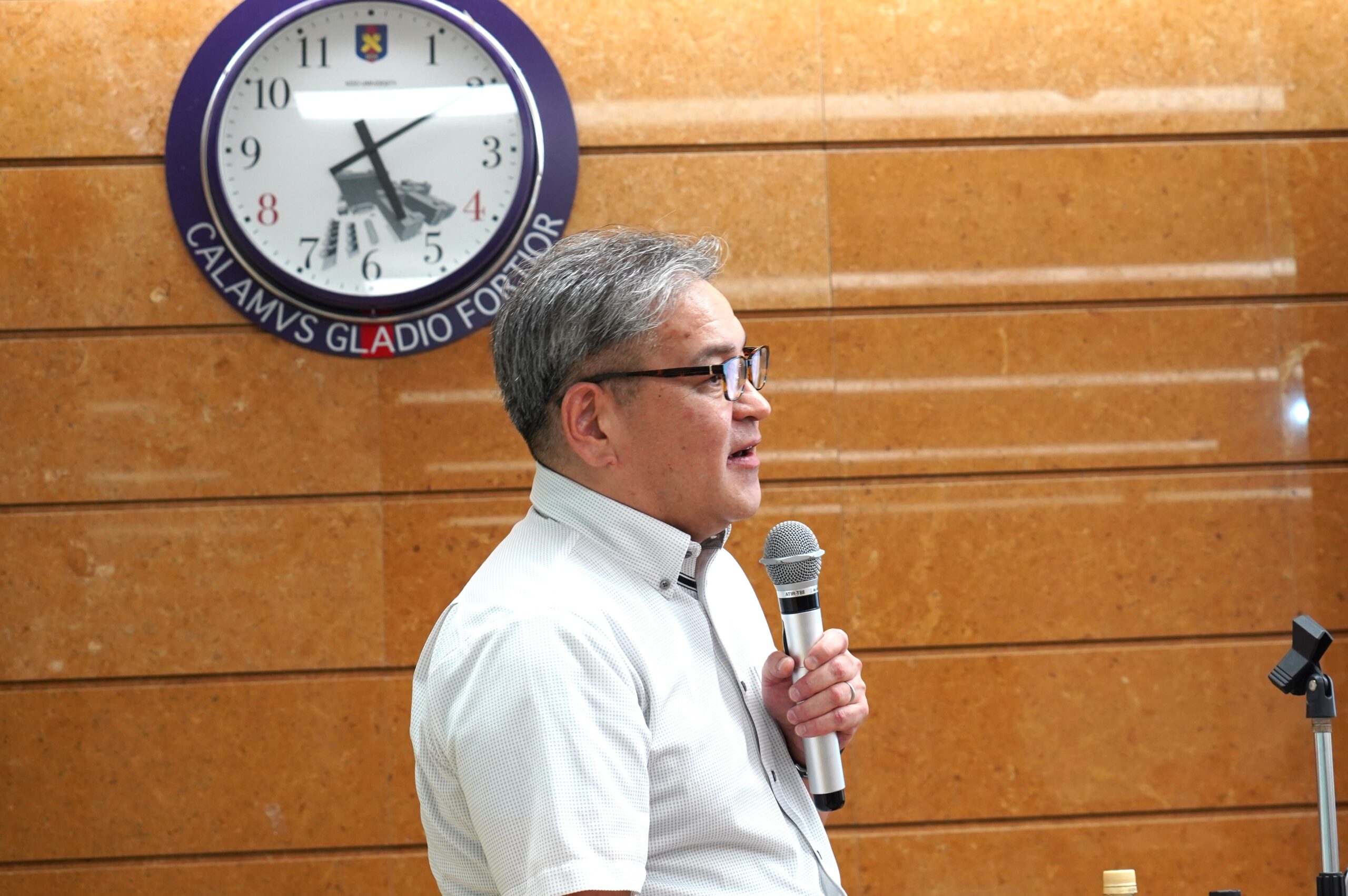
Tsutomu Suzuki, Ph.D.
Credits: WPI-Bio2Q
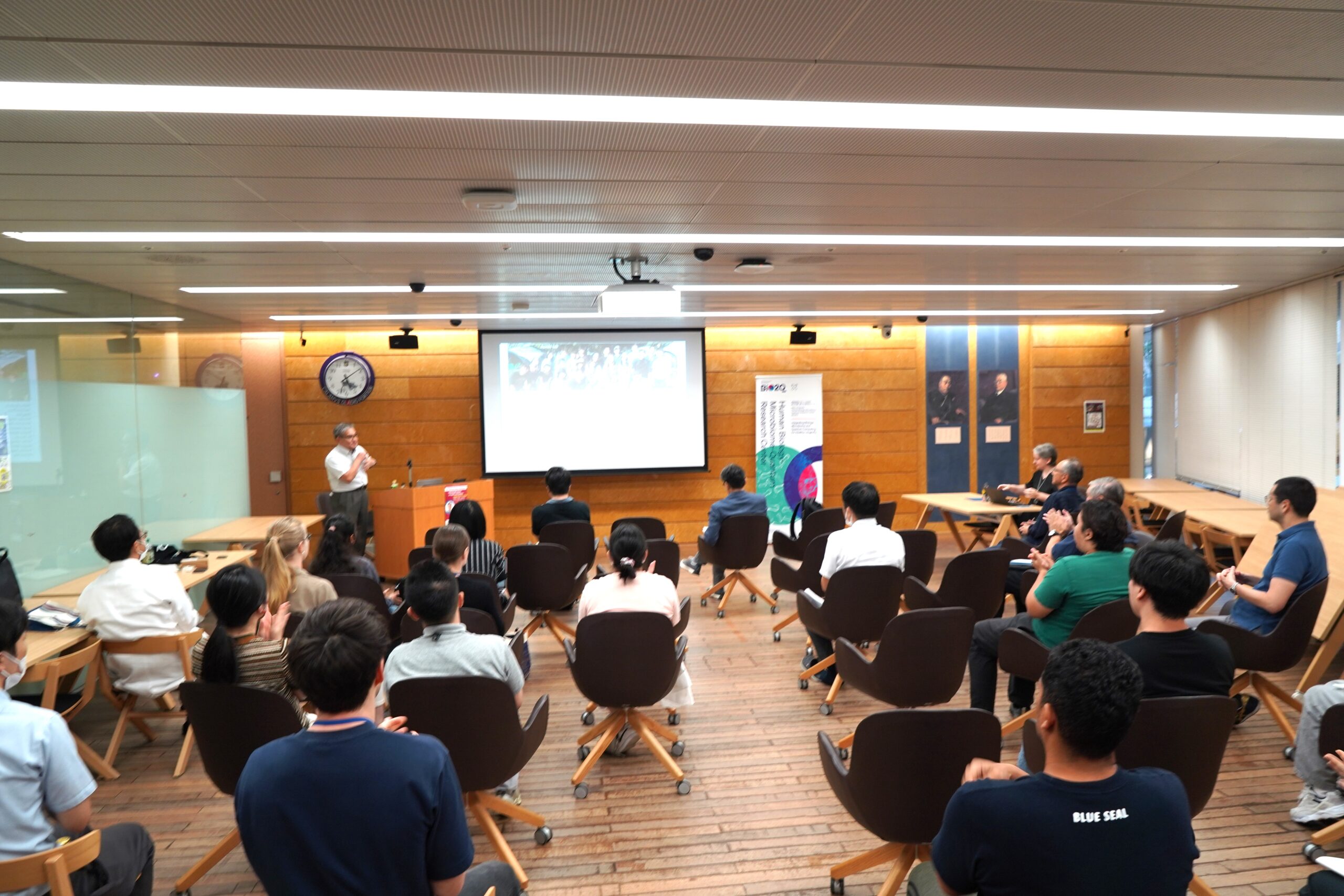
セミナーの様子
Credits: WPI-Bio2Q
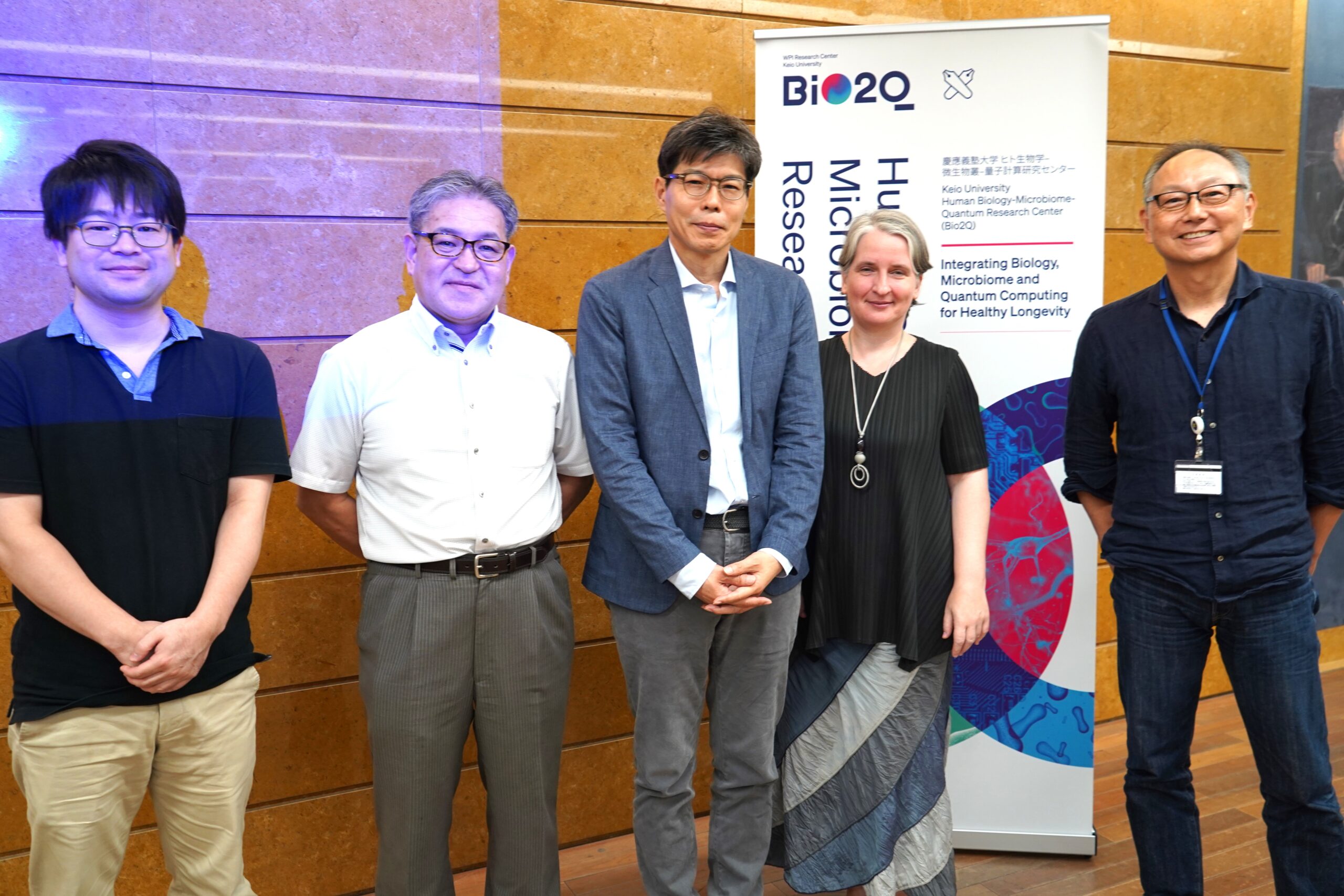
Credits: WPI-Bio2Q
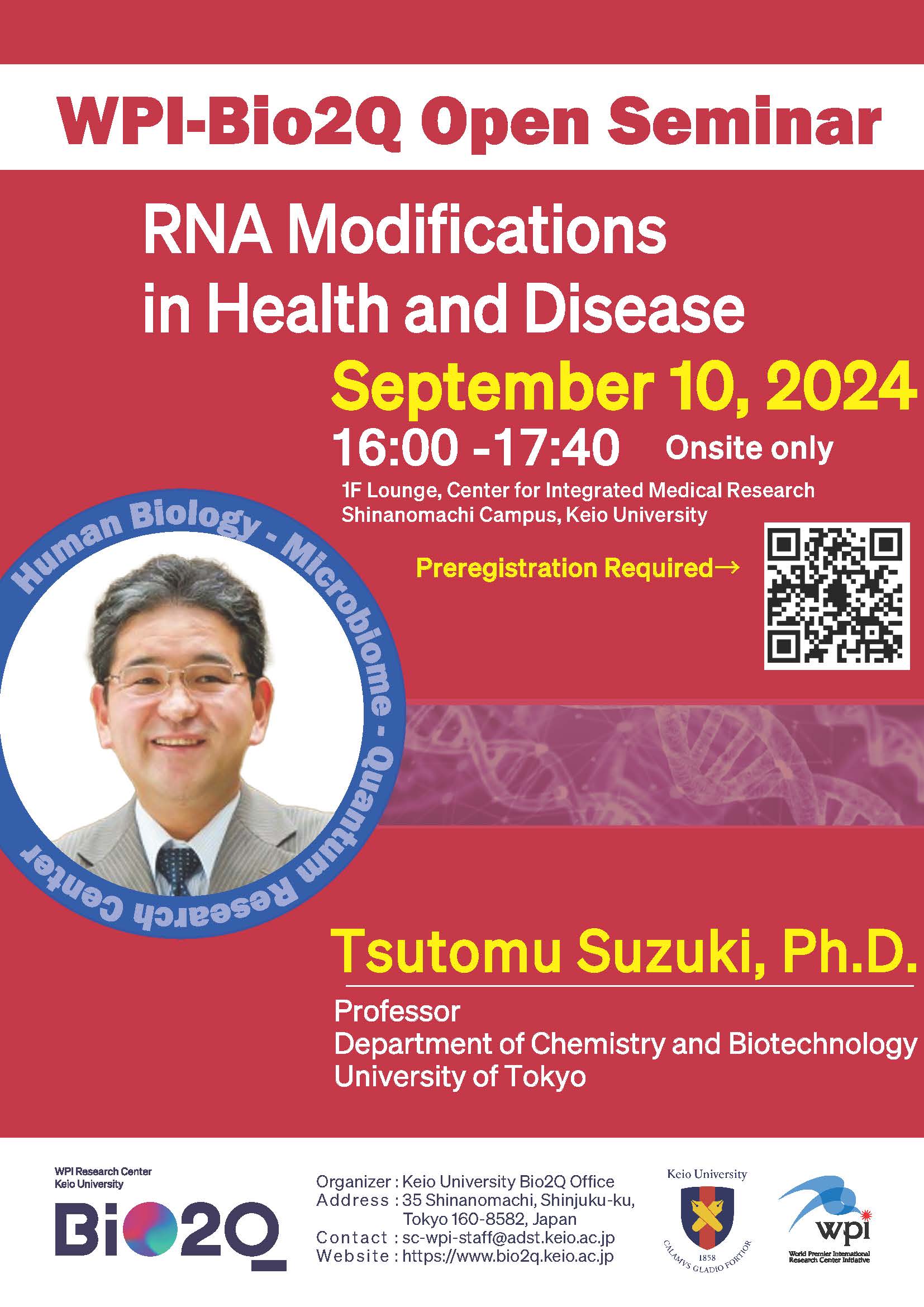
ポスター
Credits: WPI-Bio2Q
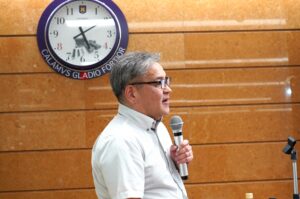
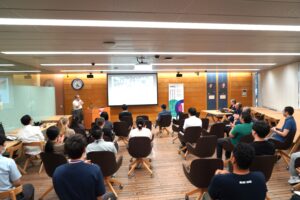
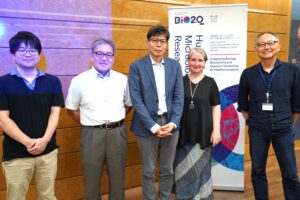
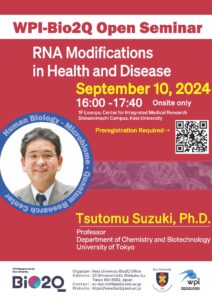




慶應義塾大学ヒト生物学-微生物叢-量子計算研究センター(WPI-Bio2Q)は、以下のとおり、公開セミナーを開催しました。
| 日時 | 2024年9月10日(火)16:00 -17:30 |
|---|---|
| 場所 | 慶應義塾大学信濃町キャンパス総合医科学研究棟1Fラウンジ(現地開催のみ) |
| 演題 | RNA Modifications in Health and Disease |
| 講演者 | Tsutomu Suzuki, Ph.D. Professor, Department of Chemistry and Biotechnology, University of Tokyo |
| 言語 | 英語 |
講演要旨
RNA molecules frequently undergo post-transcriptional modifications, which are essential for their proper function. To date, about 150 different types of chemical modifications have been identified in various RNA molecules across all domains of life. There are still a number of novel modifications to be discovered. RNA modifications appear to confer chemical diversities to simple RNA molecules basically composed of four letters, to acquire a greater variety of biological functions. These modifications play critical roles in stability and functions of RNA molecules. The physiological importance of RNA modification has been demonstrated by human diseases caused by aberrant RNA modification. We reported a severe reduction in the frequency of tRNA modifications in mitochondrial disease patients, like MELAS and MERRF. These findings provided the first evidence of RNA modification disorder. We have termed “RNA modopathy” as a new category of human diseases.
Queuosine (Q), a tRNA modification characterized by a 7-deazaguanosine with a bulky side chain, is widely present in both bacteria and eukaryotes. Unique to this modification, the free base of Q, known as queuine, is incorporated through a base replacement reaction, converting guanine (G) to Q. Eukaryotes, including humans, cannot synthesize queuine and must obtain it as a dietary nutrient from gut microbiota or dietary sources. In humans and other vertebrates, Q can be further modified by glycosylation, forming either galactosyl-queuosine (galQ) or mannosyl-queuosine (manQ). The function of these glycosylated Q modifications remained unclear for nearly half a century after their discovery. Recently, we identified two glycosyltransferases responsible for the formation of galQ and manQ and elucidated the biosynthesis, functional roles in protein synthesis, and physiological significance of these glycosylated Q tRNA modifications.
ニュースをさらに見る:
【2/25セミナー】WPI-Bio2Q Open Seminar: Andrew Wray, PhD
世界トップレベル研究拠点(WPI)慶應義塾大学ヒト生物学-微生物叢-量子計算研究センター(Bio2Q)は以下のとおり公開セミナーを開催いたします。 慶應義塾関係者の方であれば、どなたでもご参加いただけます。 日時 2026年2月25日 (水) 15:00~1...
中高生向けブックレットシリーズに新刊2冊が登場:ISSUE 09(金井 隆典 )&ISSUE 10(オルテア サンペトラ )
Bio2Qの研究活動を紹介するデジタル「中高生向けブックレット」シリーズに、新たに2号が加わりました。 ISSUE 09では、金井 隆典 教授 (Bio-1 コア) が、腸・肝臓・脳の複雑な情報伝達を通じて炎症性疾患に立ち向かう研究を紹介しています。 ISSUE 1...
WPI-Bio2Qニュースレター「Bio2Q Connect」Vol.2, Issue 13 発行
WPI-Bio2Qは、ニュースレター「Bio2Q Connect」の最新号(Vol. 2, Issue 13)を2026年1月29日に発行いたしました 。 今月号では、シングルセル・マルチオミクスに関する専門的なセミナーレポートから、組織の国際化やDEI(多様性・公平性・包摂性)...
ポスドクの公募(Nadinath Nillegoda研究室)
Bio2Qでは現在Nadinath Nillegoda研究室のポスドクを募集しています。 生物学(特に幹細胞生物学)、細胞/組織移植生物学、細胞/組織イメージング技術、およびマウスを用いた動物実験の経験を有する方を募集します。 詳細につきましては、以下のリンクよりご確認くださ...
【SpringX 超学校】生命科学の最前線を学ぶ:3回シリーズの特別オンライン講座を開催
慶應義塾大学 ヒト生物学ー微生物叢ー量子計算研究センター(WPI-Bio2Q)は、ナレッジキャピタルとの共催により、2月6日から全3回のオンライン特別講座を開催いたします。「SpringX 超学校」としてお届けする本シリーズでは、細胞や分子を視る技術の進化とAIなどの最新技術が切...







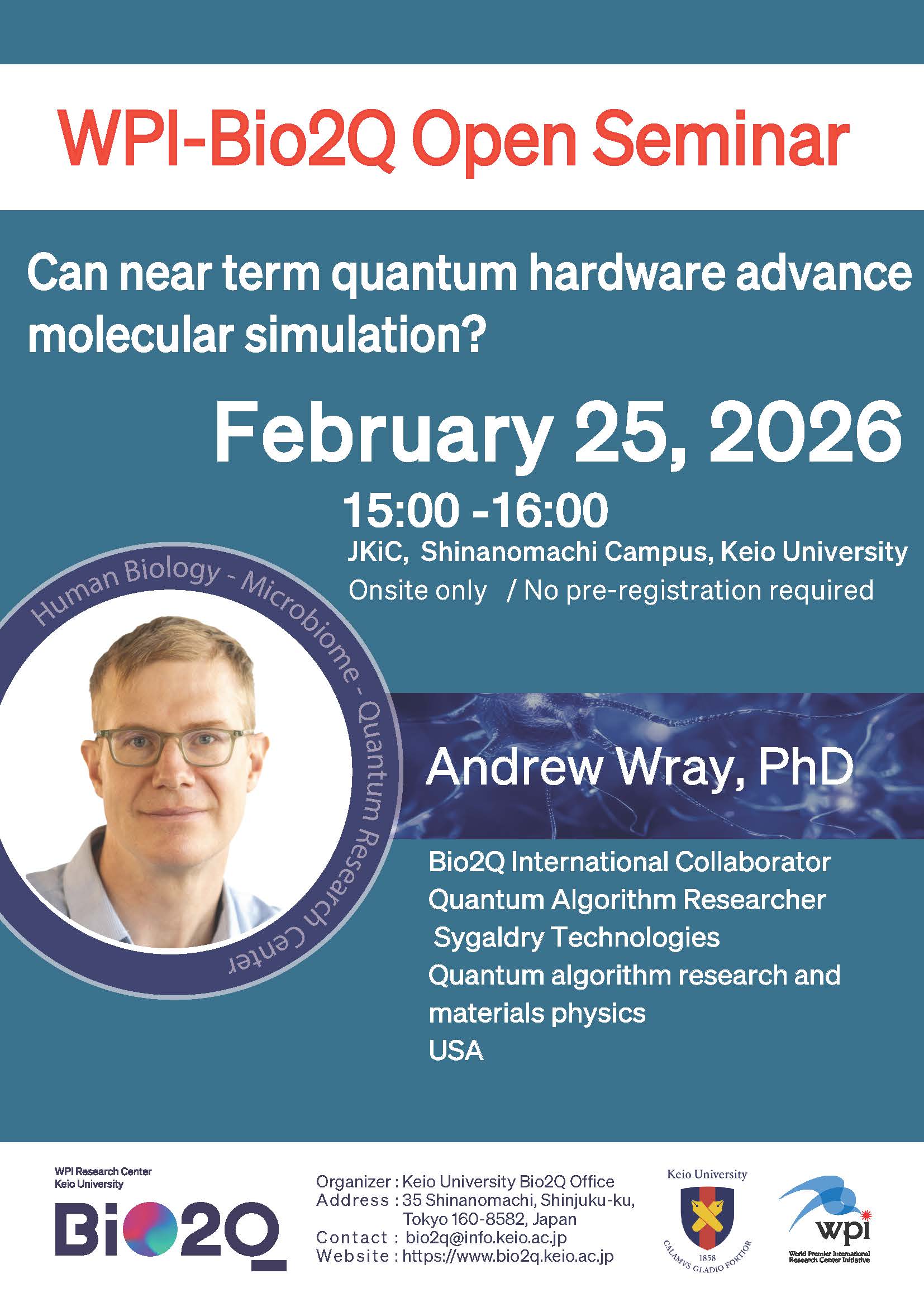
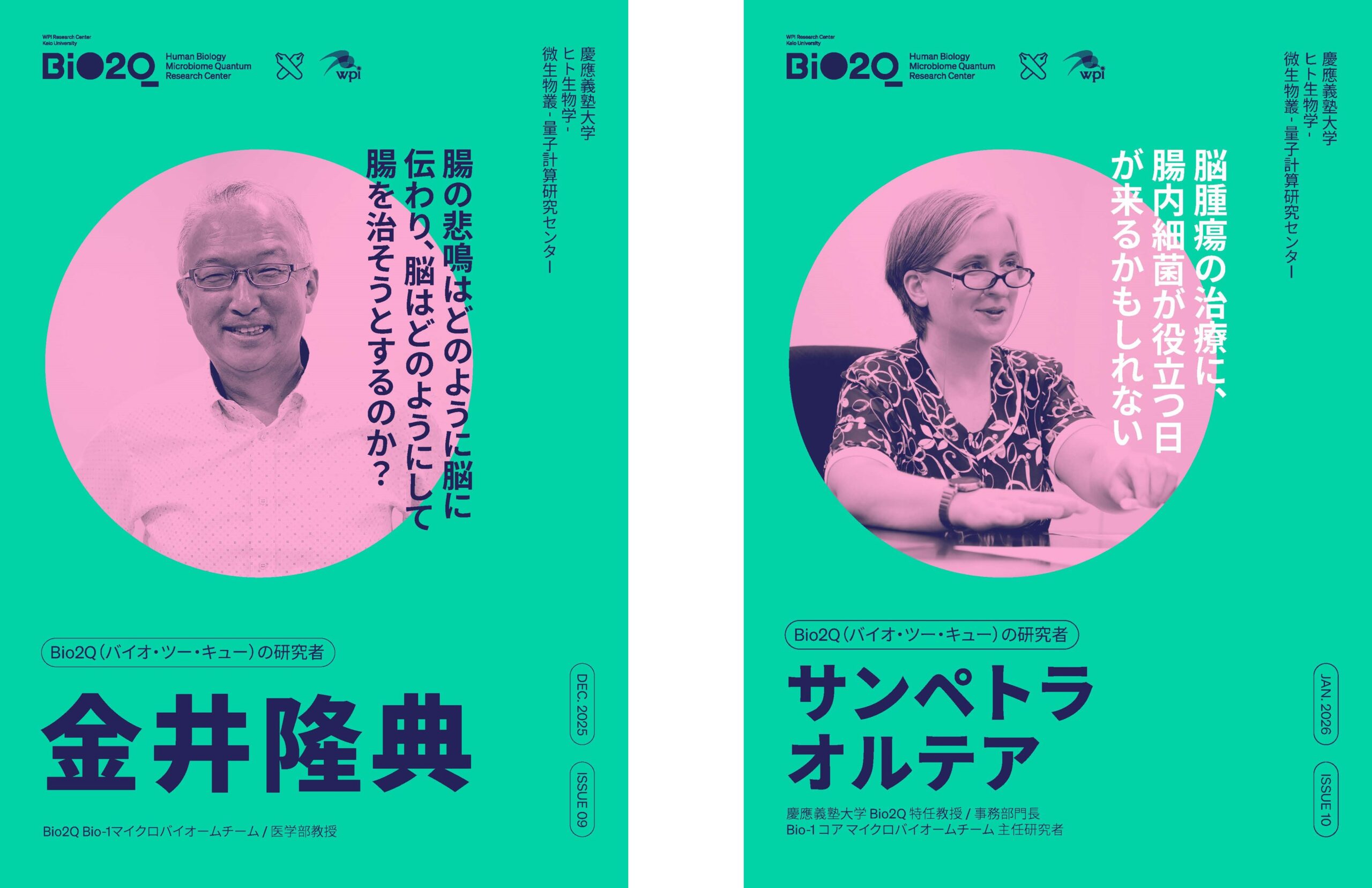
2-1.png)


